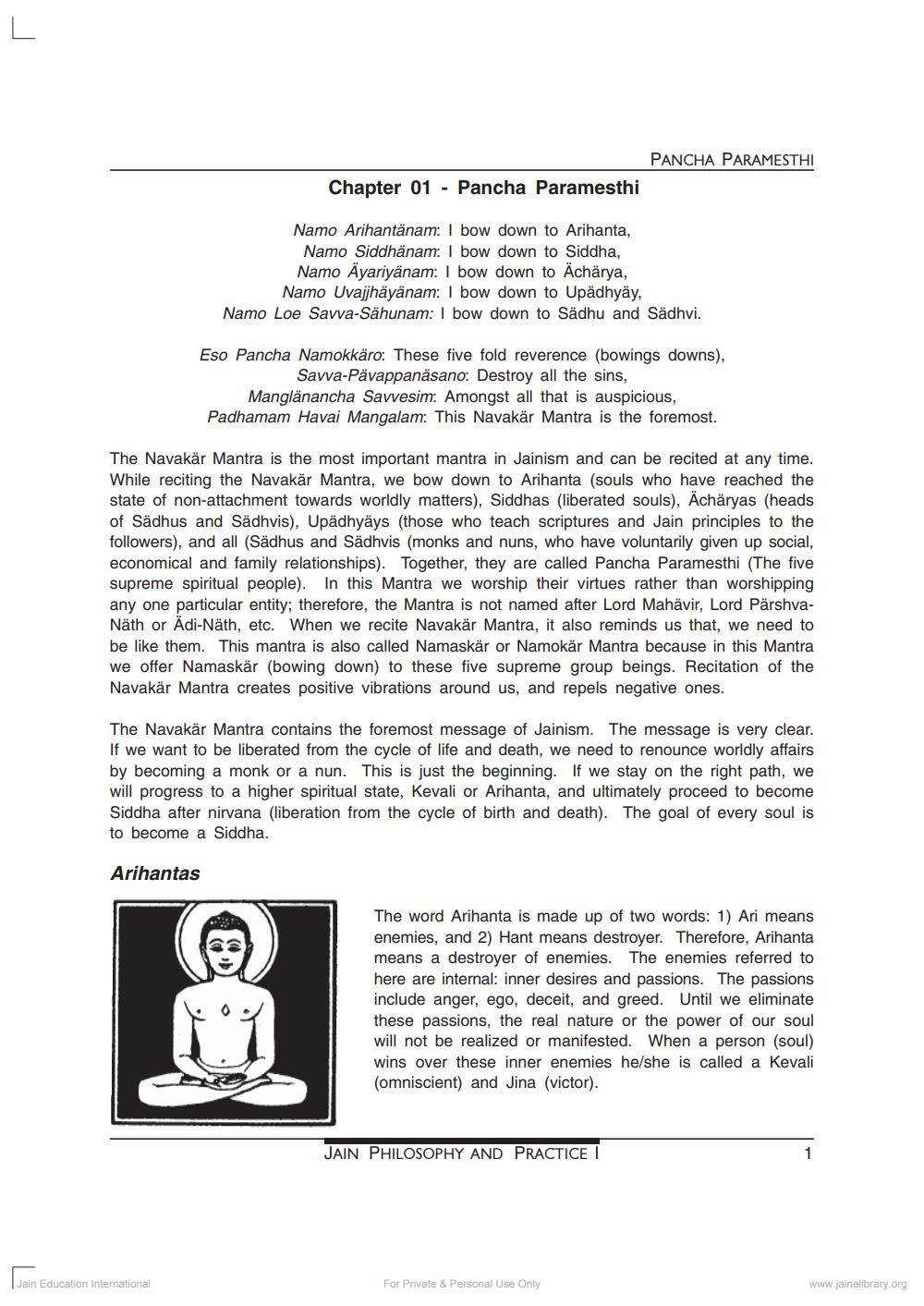________________
L
Chapter 01 Pancha Paramesthi
Namo Arihantänam: I bow down to Arihanta, Namo Siddhänam: I bow down to Siddha, Namo Äyariyänam: I bow down to Ächärya,
Namo Uvajjhäyänam: I bow down to Upadhyay, Namo Loe Savva-Sähunam: I bow down to Sädhu and Sädhvi.
Jain Education International
PANCHA PARAMESTHI
Eso Pancha Namokkäro: These five fold reverence (bowings downs), Savva-Pävappanäsano. Destroy all the sins,
Manglänancha Savvesim: Amongst all that is auspicious, Padhamam Havai Mangalam: This Navakär Mantra is the foremost.
The Navakär Mantra is the most important mantra in Jainism and can be recited at any time. While reciting the Navakär Mantra, we bow down to Arihanta (souls who have reached the state of non-attachment towards worldly matters), Siddhas (liberated souls), Ächäryas (heads of Sädhus and Sädhvis), Upädhyäys (those who teach scriptures and Jain principles to the followers), and all (Sädhus and Sädhvis (monks and nuns, who have voluntarily given up social, economical and family relationships). Together, they are called Pancha Paramesthi (The five supreme spiritual people). In this Mantra we worship their virtues rather than worshipping any one particular entity; therefore, the Mantra is not named after Lord Mahävir, Lord PärshvaNäth or Ädi-Näth, etc. When we recite Navakär Mantra, it also reminds us that, we need to be like them. This mantra is also called Namaskär or Namokär Mantra because in this Mantra we offer Namaskär (bowing down) to these five supreme group beings. Recitation of the Navakär Mantra creates positive vibrations around us, and repels negative ones.
The Navakär Mantra contains the foremost message of Jainism. The message is very clear. If we want to be liberated from the cycle of life and death, we need to renounce worldly affairs by becoming a monk or a nun. This is just the beginning. If we stay on the right path, we will progress to a higher spiritual state, Kevali or Arihanta, and ultimately proceed to become Siddha after nirvana (liberation from the cycle of birth and death). The goal of every soul is to become a Siddha.
Arihantas
The word Arihanta is made up of two words: 1) Ari means enemies, and 2) Hant means destroyer. Therefore, Arihanta means a destroyer of enemies. The enemies referred to here are internal: inner desires and passions. The passions include anger, ego, deceit, and greed. Until we eliminate these passions, the real nature or the power of our soul will not be realized or manifested. When a person (soul) wins over these inner enemies he/she is called a Kevali (omniscient) and Jina (victor).
JAIN PHILOSOPHY AND PRACTICE I
For Private & Personal Use Only
1
www.jainelibrary.org




